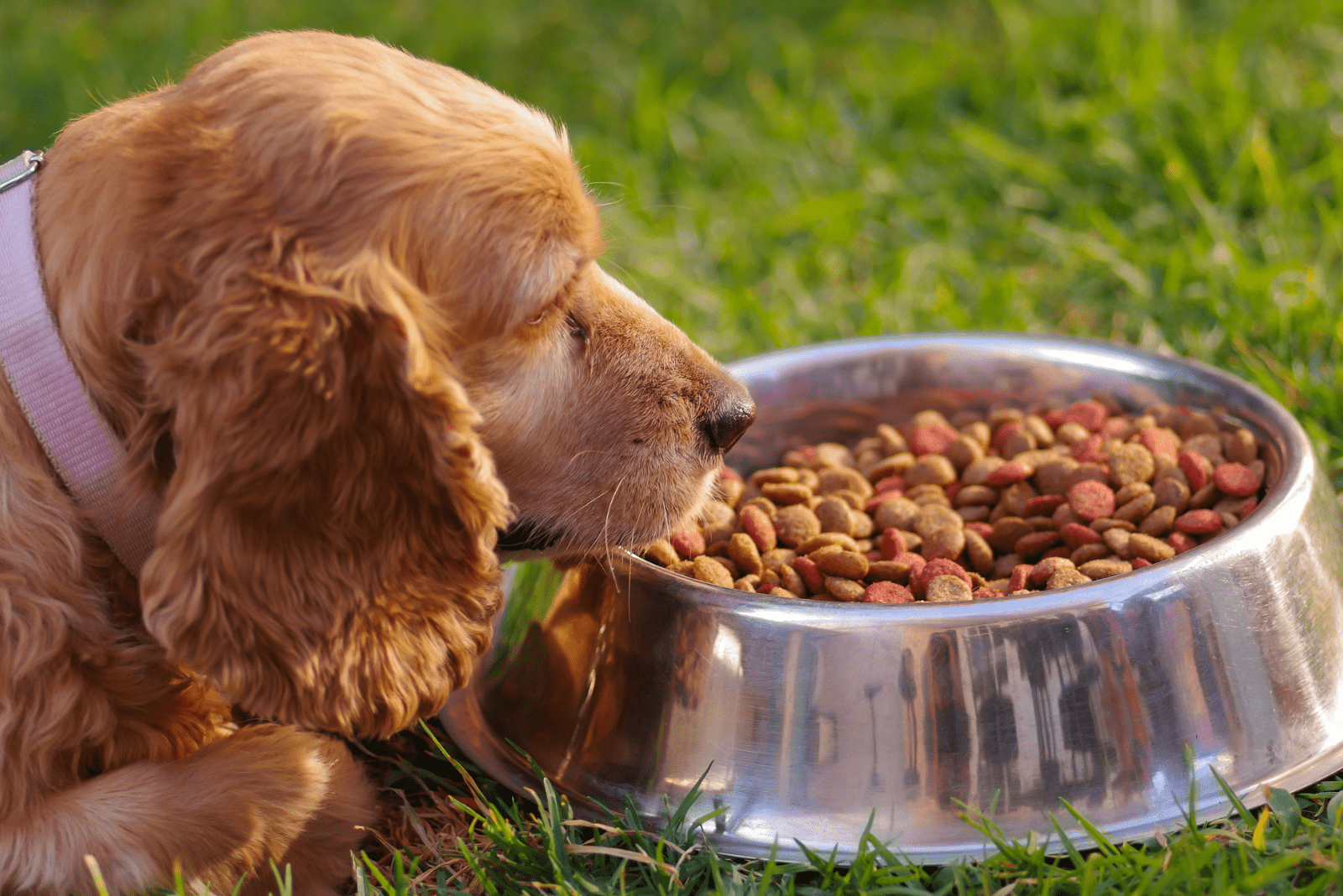
Dog Food for Cocker Spaniels with Ear Issues: A Comprehensive Guide
Cocker Spaniels are beloved for their charming personalities, beautiful coats, and soulful eyes. However, this breed is also predisposed to certain health concerns, including chronic ear infections. While proper ear cleaning and veterinary care are crucial, a carefully selected diet can play a significant role in managing and preventing ear problems in Cocker Spaniels.
Why Cocker Spaniels Are Prone to Ear Infections
Several factors contribute to the increased susceptibility of Cocker Spaniels to ear infections:
- Ear Conformation: Their long, floppy ears create a warm, moist environment that’s ideal for the growth of bacteria and yeast. The lack of airflow traps moisture, making it difficult for the ears to dry out naturally.
- Allergies: Cocker Spaniels are prone to both food and environmental allergies. Allergies can cause inflammation in the ear canals, leading to increased wax production, itching, and secondary infections.
- Excessive Hair in the Ear Canal: The abundant hair inside their ear canals traps debris and moisture, further exacerbating the problem.
- Skin Conditions: Cocker Spaniels can be prone to skin conditions like seborrhea, which can affect the ears and contribute to inflammation and infection.
The Link Between Diet and Ear Health
The food your Cocker Spaniel eats can have a direct impact on their overall health, including their ear health. Here’s how:
- Allergen Avoidance: Food allergies are a common cause of ear infections in Cocker Spaniels. Identifying and eliminating allergenic ingredients from their diet can significantly reduce the frequency and severity of ear problems.
- Immune System Support: A balanced and nutritious diet strengthens the immune system, helping your dog fight off infections more effectively.
- Inflammation Control: Certain ingredients have anti-inflammatory properties that can help reduce inflammation in the ear canals, making them less susceptible to infections.
- Skin Health: A diet rich in essential fatty acids and other nutrients promotes healthy skin, which can reduce the risk of skin conditions that affect the ears.
Key Dietary Considerations for Cocker Spaniels with Ear Issues
When choosing a dog food for your Cocker Spaniel with ear problems, consider the following:
-
Identify and Eliminate Allergens:
- Common Allergens: The most common food allergens for dogs include beef, chicken, dairy, wheat, corn, and soy.
- Elimination Diet: Work with your veterinarian to conduct an elimination diet. This involves feeding your dog a novel protein and carbohydrate source for several weeks to see if their symptoms improve.
- Limited Ingredient Diets (LID): LID foods contain a limited number of ingredients, making it easier to identify potential allergens.
- Hydrolyzed Protein Diets: These diets contain proteins that have been broken down into smaller pieces, making them less likely to trigger an allergic reaction.
-
Choose High-Quality Protein Sources:
- Novel Proteins: Consider using novel protein sources like duck, lamb, venison, or fish. These proteins are less likely to cause allergic reactions in dogs who have developed sensitivities to more common proteins.
- Animal Protein: Ensure that the food contains a high-quality animal protein source as the primary ingredient. Protein is essential for maintaining a healthy immune system and supporting skin health.
-
Include Omega-3 Fatty Acids:
- Anti-Inflammatory Properties: Omega-3 fatty acids, particularly EPA and DHA, have potent anti-inflammatory properties. They can help reduce inflammation in the ear canals and improve overall skin health.
- Sources of Omega-3s: Look for dog foods that contain fish oil, flaxseed, or algae oil as sources of omega-3 fatty acids.
-
Opt for Grain-Free or Limited-Grain Formulas:
- Grain Allergies: While not as common as protein allergies, some Cocker Spaniels may be sensitive to grains like wheat, corn, or soy.
- Grain-Free Options: If you suspect your dog has a grain sensitivity, consider a grain-free formula.
- Alternative Grains: If you prefer to include grains, choose easily digestible options like brown rice, quinoa, or oats.
-
Consider Probiotics and Prebiotics:
- Gut Health: Probiotics (beneficial bacteria) and prebiotics (food for beneficial bacteria) promote a healthy gut microbiome. A healthy gut is essential for a strong immune system and can help reduce the risk of allergies and inflammation.
- Sources of Probiotics and Prebiotics: Look for dog foods that contain added probiotics like Lactobacillus or Bifidobacterium, and prebiotics like inulin or fructooligosaccharides (FOS).
-
Avoid Artificial Additives:
- Artificial Colors, Flavors, and Preservatives: These additives can sometimes trigger allergic reactions or sensitivities in dogs. Choose foods with natural ingredients and preservatives.
-
Consider a Raw Food Diet (with Caution):
- Potential Benefits: Some owners report improvements in ear health with a raw food diet, which typically consists of raw meat, bones, and vegetables.
- Risks: Raw food diets can carry risks of bacterial contamination and nutritional imbalances if not properly formulated. Consult with a veterinary nutritionist before switching to a raw food diet.
Specific Ingredients to Look For and Avoid
| Ingredient Category | Ingredients to Look For | Ingredients to Avoid (if sensitivity is suspected) |
|---|---|---|
| Protein | Duck, Lamb, Venison, Fish, Hydrolyzed Protein | Beef, Chicken, Dairy |
| Fats | Fish Oil, Flaxseed, Algae Oil | High amounts of saturated fats |
| Carbohydrates | Sweet Potato, Brown Rice, Quinoa, Oats | Wheat, Corn, Soy |
| Additives | Probiotics, Prebiotics, Natural Antioxidants (Vitamin E, C) | Artificial Colors, Flavors, Preservatives |
Additional Tips for Managing Ear Issues in Cocker Spaniels
- Regular Ear Cleaning: Clean your Cocker Spaniel’s ears regularly with a veterinarian-approved ear cleaner to remove wax and debris.
- Ear Hair Removal: If your dog has excessive hair in their ear canals, have it professionally trimmed or plucked.
- Veterinary Checkups: Schedule regular veterinary checkups to monitor your dog’s ear health and address any infections promptly.
- Allergy Testing: Consider allergy testing to identify specific allergens that may be contributing to your dog’s ear problems.
Transitioning to a New Food
When switching your Cocker Spaniel to a new food, do so gradually over 7-10 days to avoid digestive upset. Start by mixing a small amount of the new food with the old food, gradually increasing the amount of new food and decreasing the amount of old food until your dog is eating only the new food.
Important Considerations
- Consult Your Veterinarian: Always consult with your veterinarian before making significant changes to your dog’s diet, especially if they have underlying health conditions.
- Individual Needs: Every dog is different, and what works for one Cocker Spaniel may not work for another. Be patient and work with your veterinarian to find the best diet for your dog’s specific needs.
By carefully selecting a dog food that addresses your Cocker Spaniel’s specific needs and sensitivities, you can help manage and prevent ear infections, improve their overall health, and ensure they live a happy and comfortable life.

